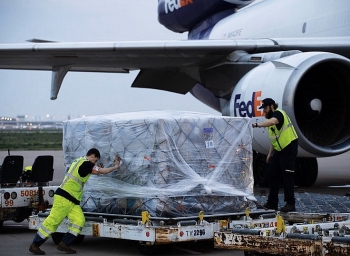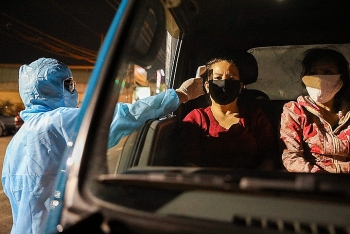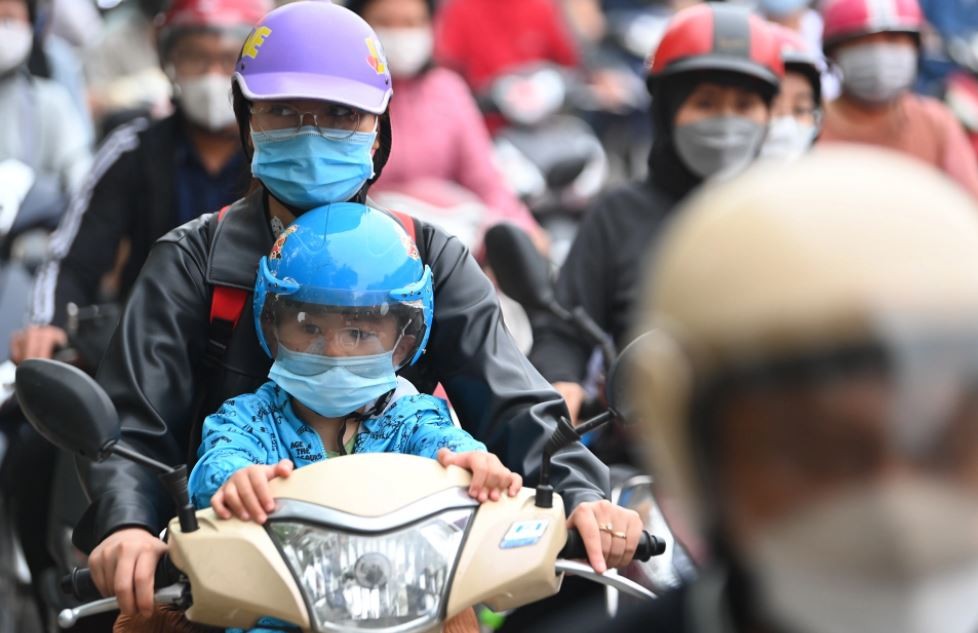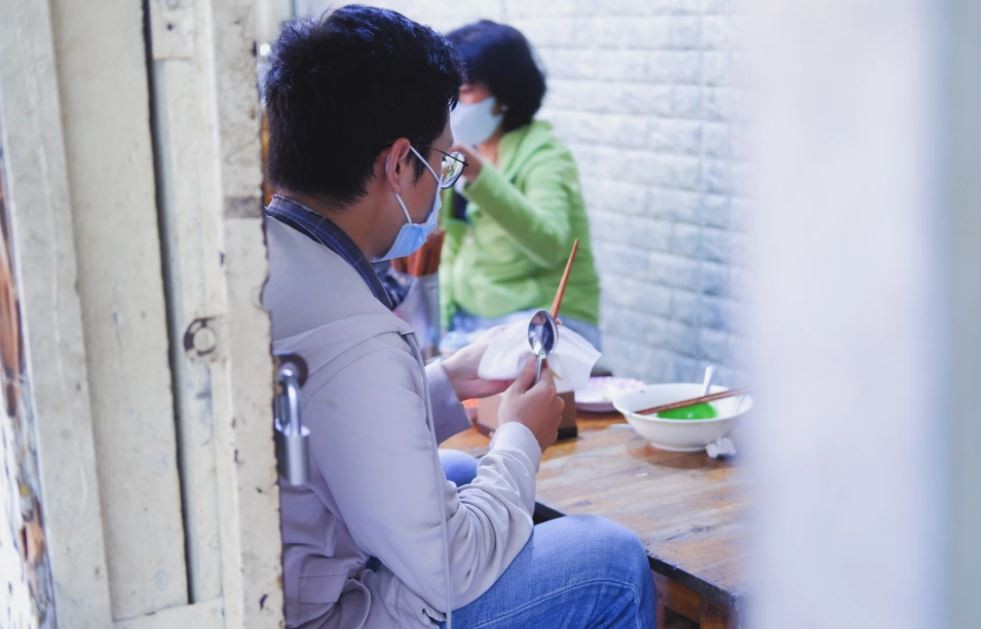Cats found able to catch coronavirus in a study, dogs not likely
| Trump tweets thanks for Vietnam’s protective suits amid coronavirus outbreak | |
| No new nCoV case in Vietnam within 24 hours | |
| Vietnamese continues donating medical items to Czech hospitals |
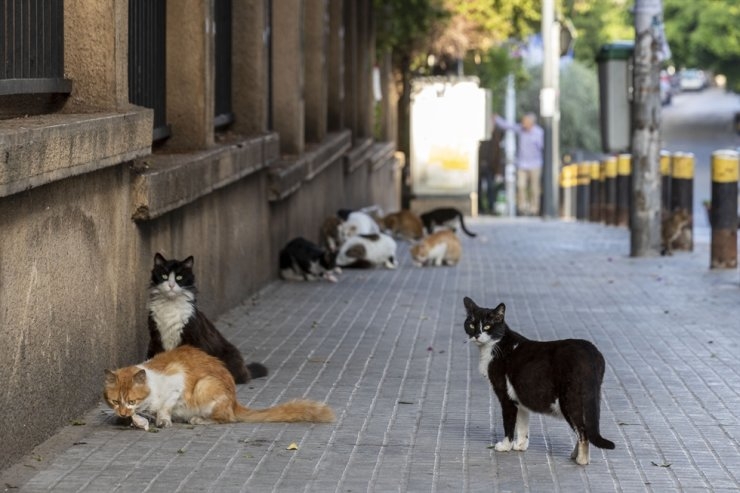 |
| Cats eat food on a street that is almost empty before a nighttime curfew imposed by the government to help stem the spread of the coronavirus in Beirut, Lebanon, Friday, April 3, 2020. AP |
The study, published on the website of the journal Science, found that ferrets can also become infected with SARS-CoV-2, the scientific term for the virus that causes the COVID-19 disease.
According to Reuters, the study was aimed at identifying which animals are vulnerable to the virus so they can be used to test experimental vaccines to fight the COVID-19 pandemic, which has killed more than 83,000 people worldwide since it emerged in China in early December.
SARS-CoV-2 is believed to have spread from bats to humans. Except for a few reported infections in cats and dogs, there has not been strong evidence that pets can be carriers.
A house cat has been infected with the novel coronavirus in Belgium after being contaminated by its owner, Belgian health authorities said on March 27.
The reports follows similar cases in the US where a tiger at the Bronx Zoo in New York City, developed a dry cough and loss of appetite after contact with an infected zookeeper tested positive for the coronavirus on April 5.
The study, based on research conducted in China in January and February, said that researchers found cats and ferrets highly susceptible to the virus when they attempted to infect the animals by introducing viral particles via the nose.
They also found cats can infect each other via respiratory droplets. Infected cats had virus in the mouth, nose and small intestine. Kittens exposed to the virus had massive lesions in their lungs, nose and throat.
"Surveillance for SARS-CoV-2 in cats should be considered as an adjunct to elimination of COVID-19 in humans," the authors wrote.
In ferrets, the virus was found in the upper respiratory tract but did not cause severe disease.
Antibody tests showed dogs were less likely to catch the virus, while inoculated pigs, chickens, and ducks were not found to have any strain of the virus.
The study prompted the World Health Organization (WHO) to say it will take a closer look at transmission of the virus between humans and pets.
Based on the evidence so far, WHO epidemiologist Maria Van Kerkhove told a news conference: "We don't believe that they are playing a role in transmission but we think that they may be able to be infected from an infected person."
The WHO asked people not to retaliate against animals over the coronavirus outbreak.
"They're beings in their own right and they deserve to be treated with kindness and respect. They are victims like the rest of us," said Mike Ryan, the WHO's top emergencies expert.
Dogs, chickens, pigs and ducks are not likely to catch the virus, however, the researchers found.
However, the pet dog fed by a coronavirus patient in Hong Kong (China) - the first pet found infectious for noval coronavirus died on March 16 after testing negative for the disease and returning home.
According to South China Morning Post, the 17-year-old Pomeranian, which belonged to a now-recovered COVID-19 patient, had been under mandatory quarantine at a government facility since February 26, and returned home on April 14.
Vets say the dog's death could have been because of the stress and anxiety of being in quarantine and away from its family.
A spokesman for the city's Agriculture, Fisheries and Conservation Department (AFCD) said: The dog had repeatedly been tested during its quarantine. A total of five tests from its nasal and oral samples all returned "weak positive" results for the virus.
| Prof Eric Fèvre, chair of veterinary infectious diseases at the University of Liverpool, said: “People should take usual precautions of handwashing when handling their pets, and avoid overly intimate contact, especially if sick with Covid. It is important to add that this says nothing about how the virus coming out of a cat may or may not be infectious to humans.” Prof Jonathan Ball, a virologist at the University of Nottingham, said similar observations of transmission in cats had been made in relation to Sars, which is genetically closely related to Covid-19. “However, it should be remembered that cats are not playing much, if any, role in the spread of this virus,” he said. “Human to human transmission is clearly the main driver, so there is no need to panic about cats as an important source of virus. Obviously, if you think you have Covid-19 and share a house with a cat, then it would be sensible to limit close interactions with your furry friend until you are better.” |
 | As coronavirus spread, 450,000 made-in-Vietnam protective suits arrived in US The first of two shipments bringing over 450,000 DuPont protective suits from Vietnam via FedEx aircraft arrived at the US Strategic National Stockpile on April 8, ... |
 | Philippines issues statement on China's sinking of Vietnamese fishing ship in East Sea The Philippine Department of Foreign Affairs (DFA) on April 8 issued a statement expressing its deep concern over a China coast guard ship’s hitting and ... |
 | Robots replace Japanese students for graduation amid COVID-19 crisis Students at the Business Breakthrough University in Tokyo used robotic stand-ins for a graduation ceremony. The robots, dubbed "Newme" by developer ANA Holdings, were dressed in graduation caps and gowns ... |
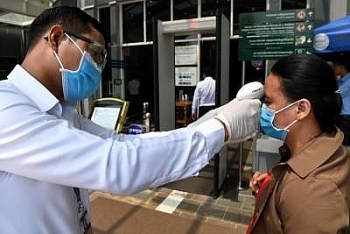 | One of latest COVID-19 patients in Cambodia found a Vietnamese woman A female tourist has become the first Vietnamese citizen to be infected with the novel coronavirus (COVID-19) virus in Cambodia, said the Cambodian Ministry of ... |
Recommended
 World
World
Pakistan NCRC report explores emerging child rights issues
 World
World
"India has right to defend herself against terror," says German Foreign Minister, endorses Op Sindoor
 World
World
‘We stand with India’: Japan, UAE back New Delhi over its global outreach against terror
 World
World
'Action Was Entirely Justifiable': Former US NSA John Bolton Backs India's Right After Pahalgam Attack
 World
World
US, China Conclude Trade Talks with Positive Outcome
 World
World
Nifty, Sensex jumped more than 2% in opening as India-Pakistan tensions ease
 World
World
Easing of US-China Tariffs: Markets React Positively, Experts Remain Cautious
 World
World

